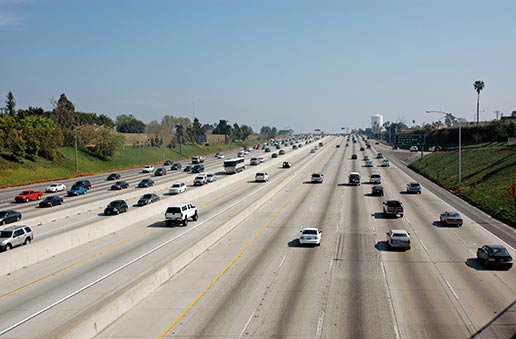Hot Weather Driving Tips

Driving in summer heat can take a toll on your car, but there are steps you can take to keep your vehicle out of trouble.
The Importance of Car Maintenance
You know that extreme cold can take a toll on your car, but did you know that extreme heat can do a number on your vehicle too? Beyond making your legs stick to your leather seats, the heat can cause serious problems for drivers. As summer approaches, it’s important to prepare for the hot weather ahead. The most important thing to do to keep heat-related problems away is to maintain your car.
Check Your Fluids
You can save yourself a lot of hassle in the hot-weather months by monitoring your car’s fluids. Fluids that you should check include:
- Coolant: This is the big one. If your coolant/antifreeze level is too low, it can cause overheating.
- Motor oil
- Transmission fluid
- Brake fluid
- Power-steering fluid
- Windshield wiper fluid
Have Your Car’s Belts and Hoses Inspected
If you’re a car expert, you can examine the belts and hoses in your vehicle yourself—but if you’re like most of us, you’re better off having a professional mechanic look them over. Intense heat can cause cracking, blistering, and other damage to your belts and hoses, and they may need to be replaced.
Replace Your Battery
If your car has an old battery, extreme summer heat can spell trouble. To avoid expensive repairs, it’s worth having your car’s battery tested, or even replaced–getting a new battery altogether will cost you less than it would to have a dead battery serviced if your car breaks down.
Monitor Your Tire Pressure
It’s a good idea to check your tire pressure each time you visit the gas station (or, if you own a tire pressure gauge, you can do this at home). Your tires actually expand when exposed to heat, and keeping them at the proper pressure will ensure that your vehicle doesn’t suffer from any issues.
Keep an Emergency Kit in Your Car
An emergency vehicle kit is something that you should keep in your car year-round, but in both the winter and the summer, having one becomes especially important. Your kit should be stored somewhere safe and accessible, and should include the following items:
- Jumper cables
- A flashlight
- Road flares
- Water
- Nonperishable food items
- A first aid kit
Having these things on hand could just end up being a lifesaver, should you ever need them.
Keep Your Car’s Interior Cool
Having the right amount of coolant for your engine is essential, but on extremely hot summer days, having a vehicle interior that is cool enough for you to actually drive in is important too. Before the heat hits too hard, make sure your air conditioning system is running properly. If your vehicle has a cabin air filter, have it inspected (and replaced, if necessary) so that you can get the most out of your cooling system.
Consider Taking Highways Instead of Side Streets
Highways are typically better maintained than regular streets, and are better equipped to handle extreme heat. Just remember the importance of maintaining your tires—the last thing you want is a tire blowout on the highway.
Want to learn more? Check out AAA’s tips for taking care of your car so that it survives the heat.










